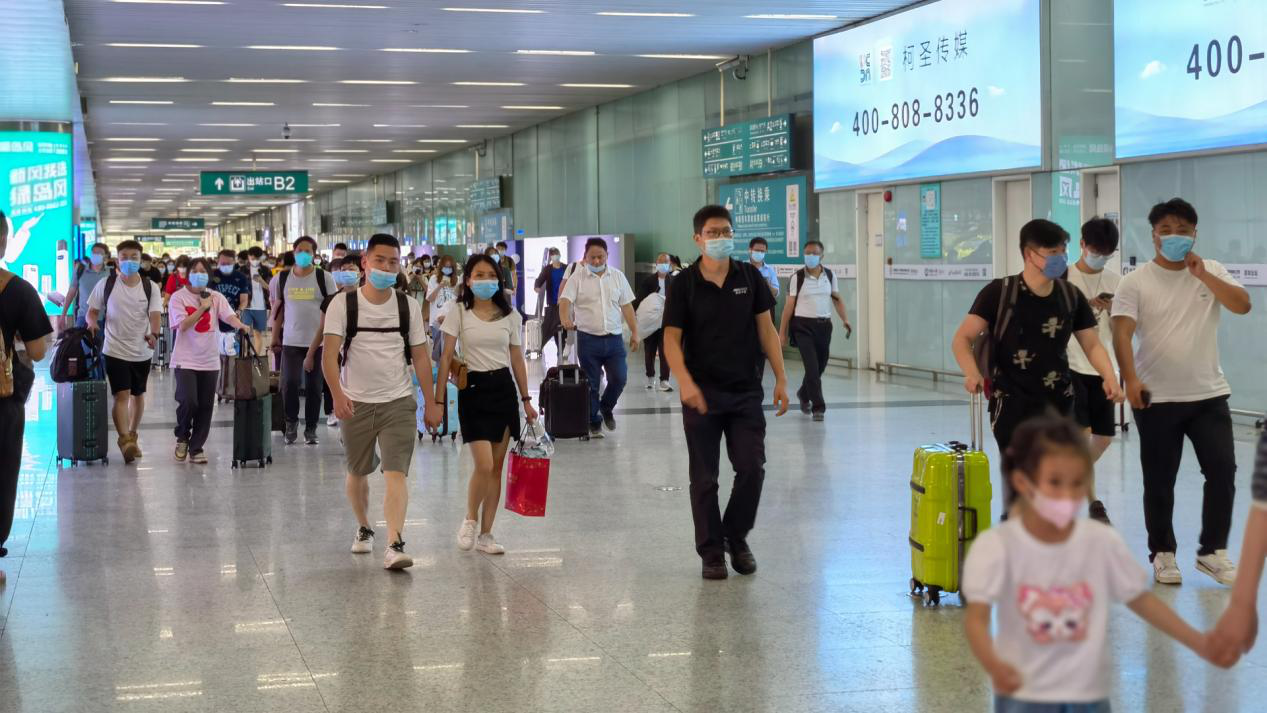In recent weeks, numerous social media users have shared their experiences of reinfection with the COVID-19 virus. The latest statistics from the Guangdong Provincial Bureau of Disease Control and Prevention indicate a concerning trend: the number of reported COVID-19 infections surged to 18,384 cases in July, an increase of 10,138 cases compared to June.
Peng Jie, director of the Center for Difficult Disease Infections at the Southern Hospital of Southern Medical University, noted that COVID-19 infections are transitioning into a periodic respiratory disease, likely leading to peaks in transmission every four to five months. However, he reassured residents that there is no need for panic; appropriate preventative measures can significantly reduce the risk of infection.

(Photo: Nanfang Daily)
Nationally, the Chinese Center for Disease Control and Prevention reported that the positivity rate for influenza-like illness tested for COVID-19 rose from 8.9% in the first week of July to 18.7% by the end of the month. The dominant strain circulating across the country remains the Omicron variant.
Monitoring data shows that at present, the COVID-19 circulating in China is still dominated by the Omicron, which mainly includes JN.1 and XDV variants. Compared with JN.1, the transmissibility, pathogenicity, and immune escape ability of XDV were not significantly changed.
Experts remain cautious about the characteristics of the XDV variant. Although it appears to spread even in high-temperature environments, the symptoms among outpatients have so far been relatively mild, indicating that there is no immediate cause for panic, provided individuals maintain proper protective measures.
Peng Jie further elaborated that similar to influenza, COVID-19 may continue to exhibit cyclical peaks every few months. This pattern results from ongoing mutations of the virus as well as diminished immunity in previously infected individuals.
"The speed of vaccine development often lags behind the rate of viral mutation," Peng said. "If the human body cannot generate adequate immune responses to counter new variants, we may witness another wave of infections. Therefore, vigilance is essential."
He advised both healthy individuals and those at higher risk—such as those with underlying health conditions or compromised immune systems—to stay attuned to public health issues and take necessary precautions.
"While healthy individuals may not experience severe symptoms upon infection, there are still risks involved. For high-risk populations, COVID-19 could act as a triggering factor for worsening health, potentially leading to severe outcomes or even death," Peng stressed.
With the virus's strong transmissibility persisting, Peng reminded everyone to take personal responsibility for their health. He suggested residents, especially elderly individuals and those with serious health issues, follow appropriate precautions when using public transport or entering crowded indoor spaces. Recommended practices include wearing masks properly, maintaining good hygiene, keeping the room well-ventilated, exercising scientifically, and improving immunity.
Reporter | Hannah
Editor | Nan, Nina, James
















